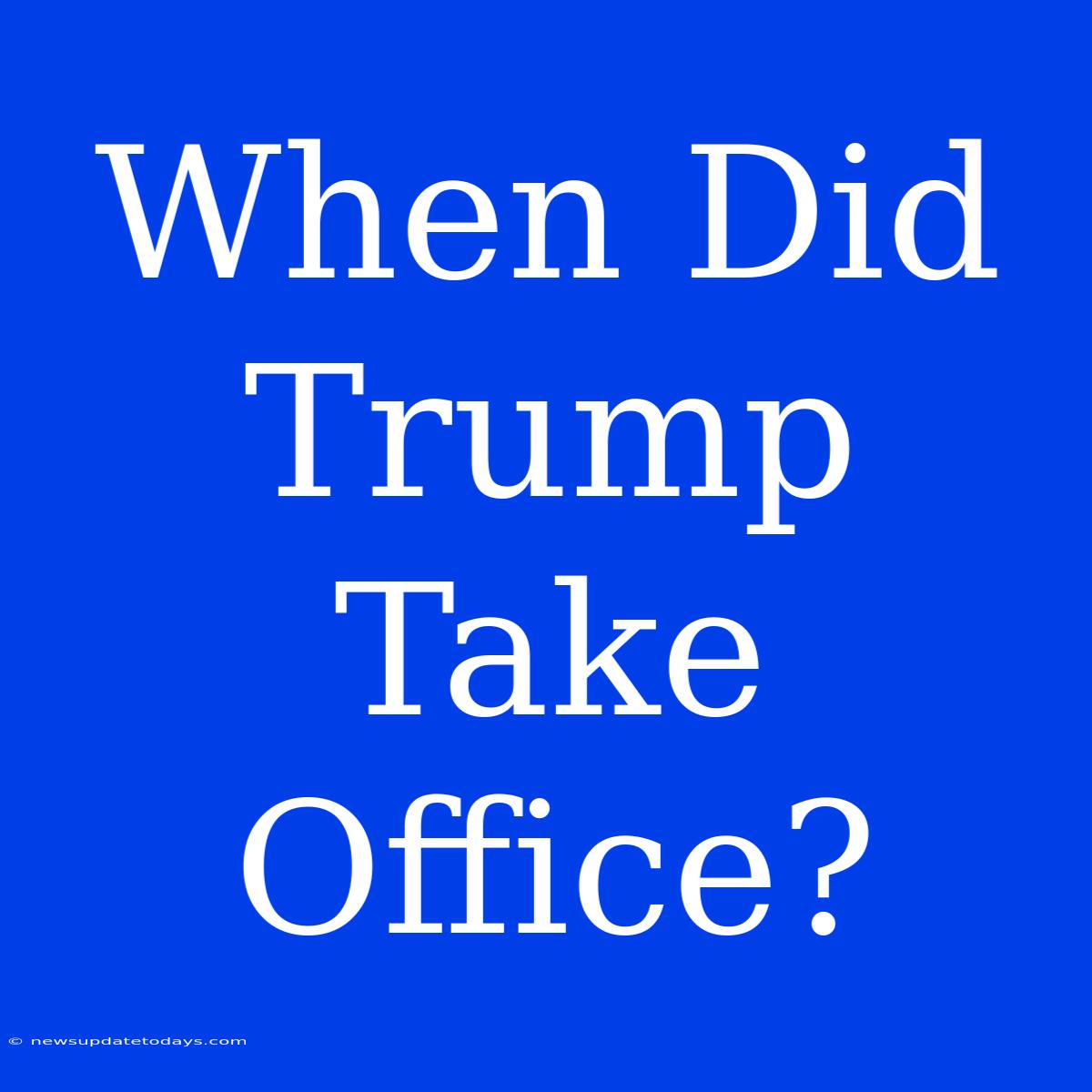When Did Trump Take Office? A Look Back at the 45th Presidency
Donald Trump's presidency, a period marked by significant political and social upheaval, began on January 20, 2017. This date marked the inauguration ceremony, a pivotal moment in American history that officially transferred power from President Barack Obama to the then-newly elected President Trump.
This article will delve into the context surrounding this date, exploring the lead-up to the inauguration and the significance of the event itself.
The Road to the Inauguration: A Tumultuous Election
The 2016 Presidential Election was one of the most contentious and divisive in recent memory. Trump's victory over Hillary Clinton surprised many, fueled by a potent mix of populist rhetoric, anti-establishment sentiment, and a strong appeal to a specific segment of the American electorate. The campaign itself was fraught with controversy, dominating headlines and shaping public discourse. This highly polarized environment set the stage for a turbulent beginning to Trump's presidency.
January 20, 2017: The Inauguration and Its Aftermath
The inauguration ceremony, held at the US Capitol in Washington, D.C., was attended by a large crowd, although estimates of its size were heavily debated. Trump's inaugural address set the tone for his presidency, outlining his key policy priorities and promising significant changes. The speech, as well as the subsequent actions of his administration, were met with a mixed reaction, sparking both support and considerable opposition.
Key Events and Policies of the Trump Presidency (2017-2021):
While a comprehensive analysis of the Trump presidency is beyond the scope of this article, some key events and policies enacted during his term include:
- Tax Cuts and Jobs Act of 2017: A significant tax overhaul that lowered corporate and individual income taxes.
- Appointment of Supreme Court Justices: Trump appointed three conservative justices to the Supreme Court, notably shifting the court's ideological balance.
- Withdrawal from the Paris Agreement: A decision to withdraw the United States from the international accord on climate change.
- Trade Disputes: Trump initiated trade disputes with several countries, imposing tariffs on imported goods.
- Immigration Policies: Trump implemented stricter immigration policies, including the "travel ban" restricting entry from several Muslim-majority countries.
The Trump presidency continues to be a subject of intense discussion and analysis, with its legacy still unfolding. Understanding the starting point, January 20, 2017, is crucial for comprehending the events, policies, and controversies that defined this pivotal period in American history. Further research into the specific policies and events of this period will provide a deeper understanding of this complex and impactful era.

